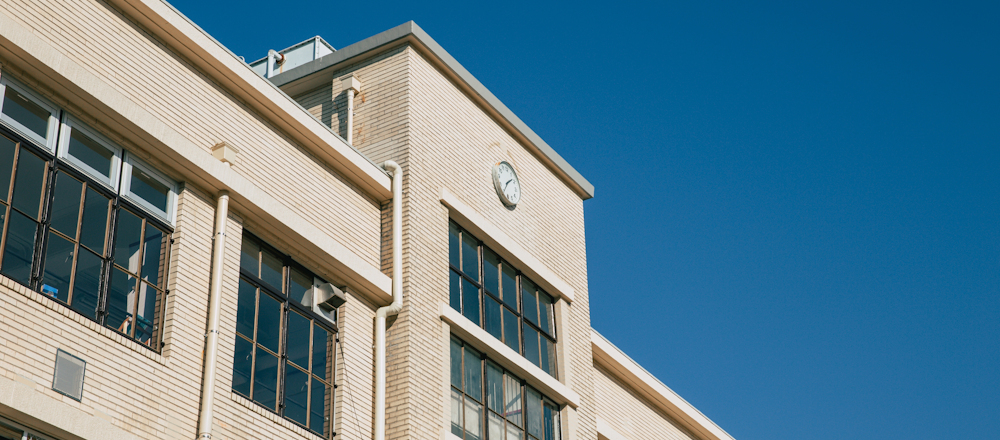Japanese society places a high value on education, and schools in Tokyo offer expats new to the city a wealth of choices. Local public schools and international schools both provide an excellent quality of education.
Most expat families opt to enrol their children in one of Tokyo's international schools. These schools cater to the specific needs of international students, offering a continuity of education with curricula from their home countries. This makes the transition into life in Tokyo smoother.
Tokyo's international schools are geared toward a diverse range of nationalities and adhere to various international curricula, predominantly those of the American or British systems. The globally renowned International Baccalaureate is also a highly regarded option. Admission requirements, tuition fees and additional costs vary widely among these schools.
Local public schools in Tokyo are also well worth considering, though they're generally best suited to families staying in Japan for the long term. The language barrier can be an issue, so families looking to take this route should only do so if their children have prior knowledge of Japanese or are young enough to pick up the language at school.
Public schools in Tokyo

For expat families with young children moving to Tokyo for an extended period, Tokyo's public schools can be a good option. These schools can help children integrate into Tokyo's local community and learn to speak, read and write Japanese fluently.
Tokyo's public schools offer language support to students who are not fluent in Japanese. These efforts are further enhanced by the Tokyo Metropolitan Board of Education's initiatives for multicultural coexistence education, which aim to support foreign children in their learning journey.
That said, there are some negatives to public schooling in Japan. The school system in Tokyo is perceived as rigorous, with high academic expectations.
For more on the national education system, see Education and Schools in Japan.
Private schools in Tokyo
Tokyo also boasts a diverse range of private schools. These institutions provide unique pedagogical approaches and follow the Japanese curriculum, often incorporating English language classes and global perspectives. They offer smaller class sizes than public schools and provide a variety of extracurricular activities.
Some private schools have a reputation for academic excellence and high university entrance rates. Although tuition fees tend to be higher than in public schools, many families consider the personalised learning environment a worthy investment. Admission can be competitive due to the high standard of education these schools offer.
International schools in Tokyo

With over 50 international schools in Tokyo, expat families have a diverse range of programmes to choose from. Most teach in English and follow the American, British, or International Baccalaureate (IB) curriculum, although some schools cater specifically to other nationalities, including French and German.
One of the key advantages of international schools is that they offer continuity of education for students. This ensures a smooth transition for those moving to Tokyo from abroad and provides a globally recognised standard of education in the home language of the school's sponsoring country.
Admission requirements vary widely among international schools. Many require prospective students to go through an interview process to assess their academic level and language proficiency. Schools might also ask for academic records, recommendation letters and standardised test scores where applicable. It's important to note that some popular international schools in Tokyo have waiting lists, so applying as early as possible is advisable.
Tuition fees differ from school to school and often depend on the grade level. Additional costs may cover items such as uniforms, field trips, bus services and technology fees. Financial considerations are a significant aspect of choosing an international school, so parents should carefully review each potential school's cost structure.
Learn more about International Schools in Tokyo.
Special-needs education in Tokyo
Tokyo's inclusive approach to education means students with special educational needs are mostly accommodated within regular public schools. The Tokyo Metropolitan Government has been proactive in promoting inclusive education, establishing special education centres and deploying support staff to schools.
The assistance offered depends on the severity of the child's needs, including resources like special-needs assistants, speech and language therapists, and physiotherapists.
Expats whose children have special educational needs should begin by communicating with their chosen school directly, providing them with as much information as possible about their children's conditions and the previous support they've received.
Some schools might require a formal diagnosis or an individual educational plan (IEP) to design appropriate support. Dedicated special-needs schools also exist for children with severe learning barriers or disabilities.
Certain international schools, as well as schools following the Waldorf-Steiner and Montessori methods, support specific conditions. They offer more flexibility in their teaching methods and may have additional resources to help students with special educational needs, although this often comes at an extra cost.
Tutors in Tokyo

Given the competitive nature of schooling in Tokyo, tutors are widely used. They can help with various areas, such as maintaining mother-tongue language skills, improving Japanese or adapting to a new curriculum. This can be especially helpful for children transitioning from one curriculum to another or those who require extra support for language skills, whether to improve their Japanese or maintain their proficiency in their mother tongue.
Tutors can also assist with preparation for entrance exams, a common requirement for private and international schools in Tokyo. Some tutoring centres offer courses specifically designed to prepare students for these exams, and it's not uncommon for students to begin these preparatory courses a year or more in advance of the actual exams.
With numerous tutoring companies in the city, expats are advised to conduct thorough research and consult with their children's schools for recommended tutors. Many tutors in Tokyo are licensed teachers, and some tutoring centres offer special programmes tailored for international students.
